Decoding the Khan’s Cuisine
Ever wondered what graced the table of Kublai Khan, grandson of Genghis Khan and ruler of a vast empire? While we don’t possess a precise menu, historical accounts, combined with an understanding of Mongol and Yuan Dynasty culinary traditions, allow us to reconstruct a likely picture of his diet. It was a fascinating blend of nomadic Mongol fare and the sophisticated cuisine of the imperial Chinese court. This article explores the historical context, likely ingredients and dishes, and the cultural significance of food in Kublai Khan’s world. [https://www.lolaapp.com/kublai-khan-menu]
What Food Did Kublai Khan Likely Eat?
Forget romanticized notions of exotic delicacies—Kublai Khan’s diet, while certainly diverse given his vast empire, was grounded in the practicalities of Mongol nomadic life layered with the richness of Chinese imperial cuisine. [https://www.lolaapp.com/kublai-khan-menu]
Mongol Dietary Staples
The nomadic Mongols relied heavily on their herds. Dairy products like milk, yogurt, fermented mare’s milk (airag or kumis), and various cheeses were staples. Meat, especially mutton, was consumed, often utilizing the entire animal. Goats, horses (less frequently), Bactrian camels, and yaks (in mountainous regions) also provided meat. However, maintaining livestock for milk, wool, and other resources often took priority over slaughtering. Crop cultivation was limited due to their nomadic lifestyle.
Imperial Chinese Influence
As the Yuan Dynasty emperor, Kublai Khan had access to the refined cuisine of the Chinese imperial court. His meals likely incorporated rice, an array of vegetables, diverse fruits, exotic spices, and meats prepared with complex techniques. Skilled chefs crafted elaborate dishes, reflecting the empire’s wealth and reach.
A Fusion of Flavors
A typical meal for Kublai Khan probably combined both culinary worlds. Imagine roasted mutton, a Mongol staple, served alongside delicate Chinese stir-fry. Fermented mare’s milk might have been followed by spiced rice pudding. The exact combinations remain uncertain, but the fusion of flavors is likely. [https://www.lolaapp.com/kublai-khan-menu]
Excess and Indulgence
Later in life, perhaps following personal losses, Kublai Khan reportedly struggled with overindulgence. Historical accounts suggest he battled obesity and gout, possibly exacerbated by excessive eating and drinking. This reminds us that even with vast resources, moderation remains vital.
Ongoing Research
While we gain valuable insights from historical texts, ongoing research continues to uncover details about Yuan Dynasty food and court life. Some interpretations remain debated, and new discoveries could shift our understanding. Certain scholars believe regional delicacies played a larger role than previously thought, while others point to the introduction of new ingredients through foreign trade.
Kublai Khan on Screen: From Historical Dramas to Epic Adventures
Intrigued by Kublai Khan and want to see his life on screen? Several films and series offer glimpses into his world, each with its own interpretation. [https://www.lolaapp.com/kublai-khan-menu]
Marco Polo (Netflix): A Glimpse into Court Intrigue
Perhaps the most well-known portrayal is in Netflix’s Marco Polo. This series depicts a Khan grappling with the complexities of ruling a vast empire amidst lavish sets and courtly conspiracies. While historical accuracy is sometimes sacrificed for dramatic effect, it offers a captivating vision of 13th-century Mongol court life.
Alternative Adaptations
The 2007 film Marco Polo takes a more adventurous, less historically rigorous approach. Think rescuing princesses and encountering gunpowder-wielding hermits. This version prioritizes entertainment over historical fidelity.
The Legend of Kublai Khan: A Chinese Perspective
For a more grounded (though still dramatized) account, consider The Legend of Kublai Khan. This Chinese drama explores Khan’s rise and the Yuan Dynasty’s establishment, offering a different cultural lens on this complex figure.
Documentaries: Historical Snapshots
Documentaries like History of the World Part 2 provide concise overviews of Kublai Khan’s reign. While not in-depth, they offer helpful historical context.
The Untapped Potential
A true Hollywood epic solely focused on Kublai Khan remains elusive. The potential is vast, encompassing sweeping landscapes, cultural clashes, and the internal struggles of a powerful ruler. Perhaps future films will delve into the role of food in diplomatic relations and court life within the Mongol Empire, exploring the known or likely dishes, ingredients and their cultural significance. Perhaps future films will delve into the cultural significance of food in Mongol culture, the importance of feasts and banquets, and any unique dining customs.
Beyond Tolerance: Kublai Khan’s Fascination with Buddhism and Its Impact on the Yuan Dynasty
Kublai Khan’s spiritual life was a tapestry woven with personal beliefs, political strategy, and the influence of his diverse empire. While the answer to “Was Kublai Khan Buddhist?” is generally yes, the details reveal a richer story. [https://www.lolaapp.com/kublai-khan-menu]
Early Influences
Kublai Khan’s journey with Buddhism began in childhood. His mother, Sorghaghtani Beki, entrusted his care to a Buddhist Tangut woman, exposing him to the faith early on. This likely laid the groundwork for his later spiritual leanings. He also studied with Haiyun, a prominent monk in northern China.
Conversion and Its Implications
In 1258, Kublai Khan formally converted to Tibetan Buddhism. He appointed Phagpa, a respected Tibetan lama, as his spiritual advisor. This conversion had political ramifications, strengthening his ties with Tibet and enhancing his influence.
Religious Tolerance
Despite his personal faith, Kublai Khan demonstrated religious tolerance. Confucianism and Daoism continued to thrive under his rule, indicating an understanding of his empire’s diverse spiritual landscape.
Impact on the Yuan Dynasty
Kublai Khan’s conversion influenced Yuan Dynasty life. Tibetan art, architecture, and philosophy entered the empire’s cultural mainstream.
Ongoing Exploration
While we know Kublai Khan embraced Tibetan Buddhism, the full extent of his motivations and religious practice remains a subject of ongoing research. Further study may reveal more about the interplay of personal belief, political strategy, and cultural exchange in his spiritual life.
Indulge in the sweet and minty delight of jolly rancher candy canes this holiday season. Adorn your landscape with the breathtaking beauty of a kwanzan flowering cherry tree, its vibrant pink blossoms a true spectacle of nature.
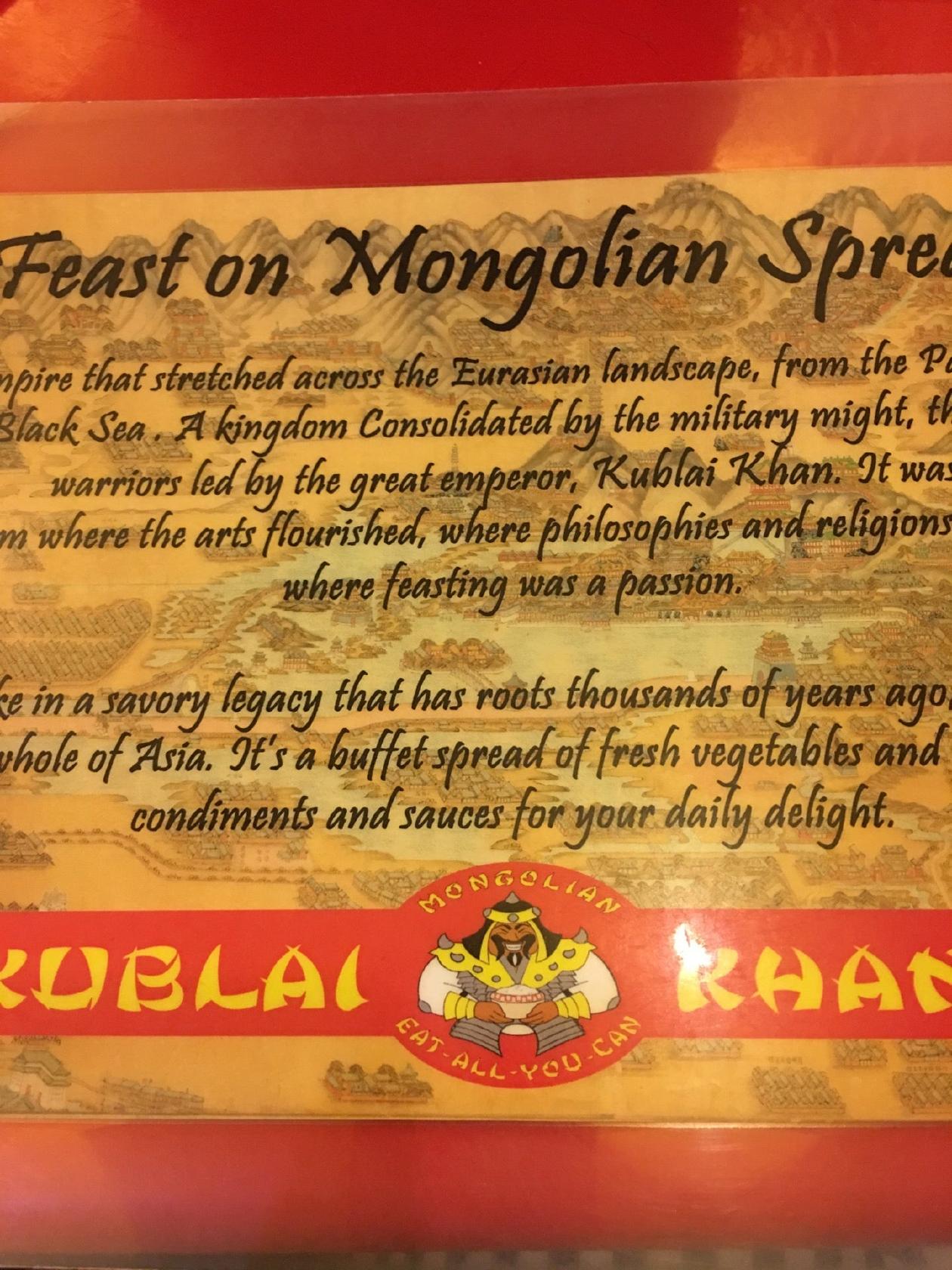
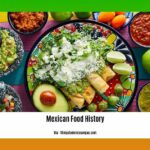

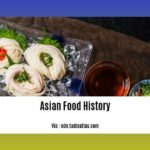
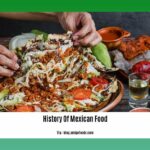

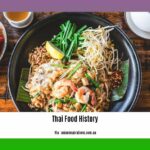






2 thoughts on “Kublai Khan Menu: Prices, Dishes, & Locations (Your 2024 Guide)”
Comments are closed.